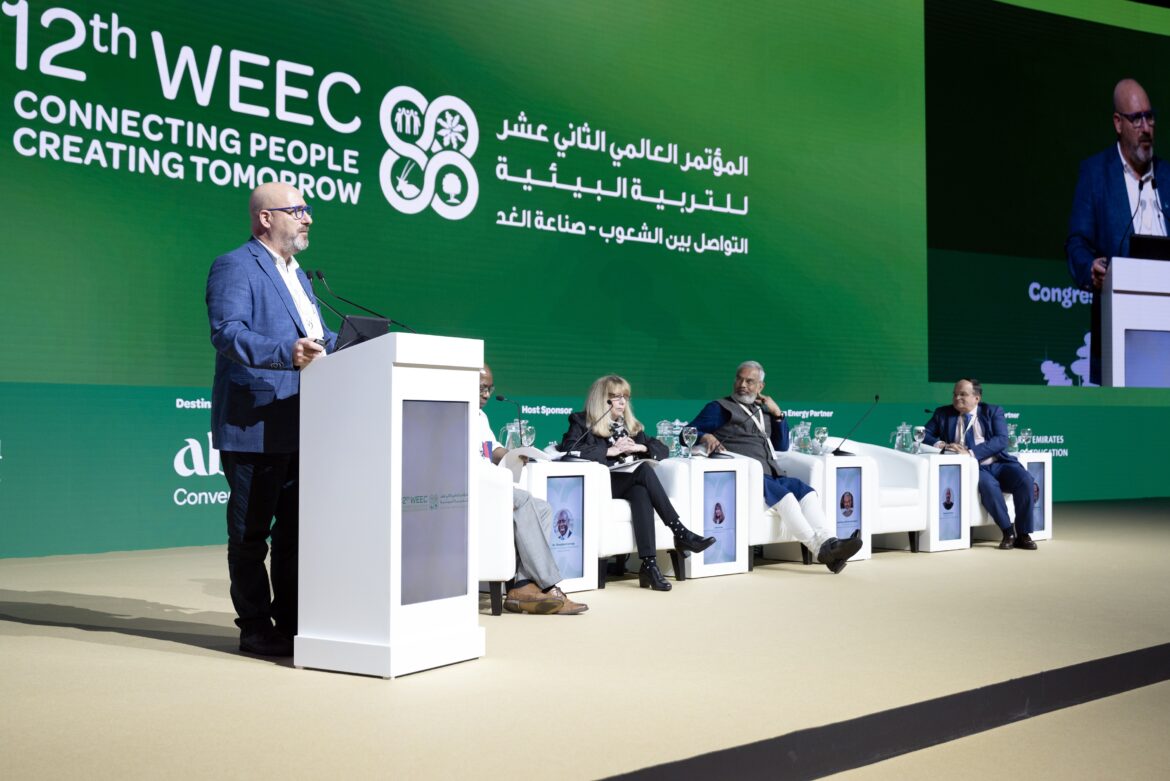Day Three of the 12th World Environmental Education Congress (WEEC2024) at the Abu Dhabi National Exhibition Centre (ADNEC) focused on investigating the ‘dimensions and means’ to address the Triple Planetary Crisis.
The day began with Plenary 5 of the five-day conference, which saw speakers note the importance of cultural diversity in addressing climate change; the critical need to develop inclusivity within environmental action programmes, was also underlined, explaining that diverse communities are strong communities.
Dr. Purnima Devi Barman, Director, Rewilding Academy, UN Champions of the Earth Winner, said: “The voice of rural women has shaped many environmental movements. Women who understand science and come to the forefront of conservation programmes, have the power to change the world.”
Plenary 6 presented thoughts on the importance of networking for developing impactful EE. Here, Judy Braus, Executive Director North American Association for Environmental Education (NAAEE), USA, said: “Networking encourages collaboration, trust-building, and creates a greater impact by sharing effective practice and scaling initiatives – playing a vital role in advancing our work to contribute to a sustainable future.”
Carlos Alvarez Pereira, Member, The Club of Rome, agreed: “The resonance between so many initiatives of EE all around the world is critical. Resonance creates the conditions for mutual learning and could ultimately lead to systemic change towards equitable wellbeing within a healthy planet”.
Kartikeya Vikram Sarabhai, Founder and Director of the Centre for Environment Education, India, added: “We must establish effective networks to ensure changemakers are exposed to diverse ideas and strategies of using education towards solving the triple planetary crisis”.
Later in the day, three speakers presented ideas in Plenary 7 – a panel discussion hosted by Judy Braus, NAAEE, USA, titled: ‘Outdoor and Place-based Learning in the Decade of Ecosystem Restoration.’
This session highlighted nature’s role as a teacher and the importance of immersing oneself in it, echoing this Dr Benno Boer, Chief, Natural Sciences Unit, UNESCO, New Delhi Office, India and Dr Peter Stanfield, Land Based Cambian Lufton College, UK, shared examples of successful outdoor education programmes.
Young people were also given a voice through the dedicated Youth Environmental Education Congress (YEEC), a special youth-focused programme running alongside the WEEC.
Here, youth had the opportunity to showcase some of their environmental-related projects in sessions.



